Ranking Ridley Scott's 10 Best Films
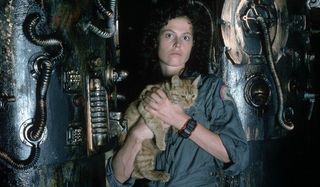
Has Sir Ridley Scott really achieved his true potential? That feels like a bizarre statement to make when you’re talking about not only a knight of the British realm, but a director who redefined the sci-fi, horror and historical-epic genres with his impeccable choice of iconography and masterful storytelling talent.
There’s no denying the fact that Sir Ridley Scott is in a league of his own when it comes to hypnotically entrancing audiences with his ambition, choice of images, the pacing of narrative and his ability to coax career-defining performances from actors. His cannon of work, which consists of 22 films, already proves that he has made four of the most important movies in cinematic history. I just can’t help but feeling -- ever so slightly -- that there should have been more. To help you decide if I’m actually right or hideously wrong, we have collected what we believe to be Sir Ridley Scott’s 10 best films. And we ranked them. Would you agree? Should one be higher than another? And which ones did we leave out? Weigh in with a comment, and enjoy the list:
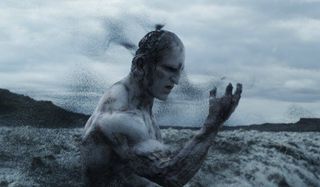
10. Prometheus
Was Prometheus ultimately a disappointment? In all honesty, yes. But, despite its tepid plot and weak characterisation, it still possessed a fervent cinematic audacity, visual grandeur and heartfelt performances by which you couldn’t help but be enchanted. Sir Ridley also proved that even in the midst of the mire he could still create immense thrills and new iconic sci-fi designs, that come through in what is a technically flawless movie.
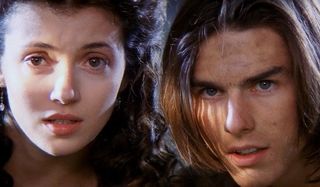
9. Legend
A catastrophic failure upon its release - costing just under $25 million to make, but only grossing $15.2 million - Legend was also ravaged by critics back in 1985 too. However, it has since developed into a cult classic, which was further exacerbated thanks to the release of Sir Ridley Scott’s director’s cut in 1992. Yes, the film is laughably clichéd in parts, has a rather barren narrative, and even renders Tom Cruise uncharismatic, but there’s no denying just how striking its imagery and visuals are. It was probably a little bit too ambitious for its day and age, but it remains one of Ridley Scott’s better films.
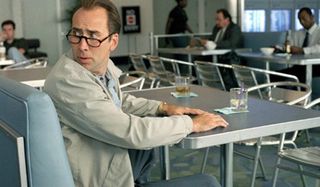
8. Matchstick Men
CINEMABLEND NEWSLETTER
Your Daily Blend of Entertainment News
Matchstick Men is perhaps the true underrated gem from Sir Ridley Scott. There are twists and turns aplenty courtesy of Ted and Nicholas Griffin’s script, and the effervescent cast of Nicolas Cage, Sam Rockwell, and Alison Lohman leave you utterly captivated yet completely on-guard because of their untrustworthy antics. Never dull for a second, Matchstick Men is funny and emotional, and perfectly combines complex characterization with an entertaining and nuanced plot. It also happens to be Cage’s best performance since Raising Arizona.
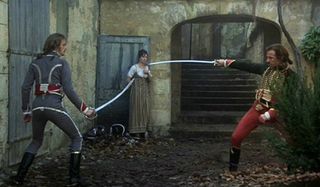
7. The Duellists
It makes sense that Sir Ridley Scott’s first film as a director would be a borderline stupidly ambitious adaptation of a Joseph Conrad short-story. Not only was it set in France in the early 1800s, but it was also made for just $900,000. But Scott took to filmmaking in his first feature like a Brit to tea, and he sumptuously guided his esteemed cast - which included the likes of Keith Carradine, Harvey Keitel, Albert Finney, and Tom Conti - into mesmeric performances, while also subtly placing the camera into exactly the right position for every scene. Thematically deep, nail-bitingly tense, the movie’s only let-down by what can be described as uneven script.
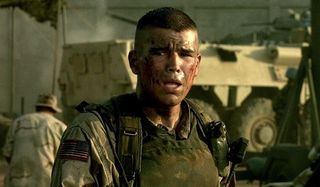
6. Black Hawk Down
Black Hawk Down was a victim of expectation when it was released back in 2001. After Gladiator, Sir Ridley Scott could no wrong, but Hannibal had been a misstep and audiences expected him to return to gold with this harrowing war drama. The director oversaw a preposterously talented cast, which included Erica Bana, Ewan McGregor, Tom Sizemore, Sam Shepard and *ahem* Josh Hartnett, but despite its impressive gross and mostly positive reviews, critics and audiences alike never truly embraced either its relentless energy, or its intimate, no holds barred, violent look at war. The fact that it was released less than four months after 9/11 was probably the reason for that. It’s initial reaction aside, the truth is that 13 years on it is still a genre subverting, non-stop, frenetic master-class for how to make an action film.
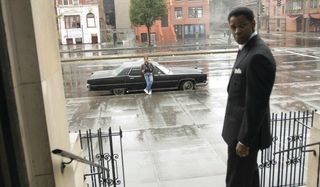
5. American Gangster
This is another Sir Ridley Scott masterpiece that has been overlooked simply because of the hype surrounding its initial release. Scott coerces arguably the two best actors of their generation, Denzel Washington and Russell Crowe, to awe-inspiring performances. He also allows the grity, urban landscape to truly develop and evolve as the film proceeds, patiently leading the audience through a relative simple gangster plot that harks back to the classics of the genre. Sir Ridley Scott doesn’t populate the film with his usual visual flair, instead placing more emphasis on the plot. Unfortunately, American Gangster tries to pack too much in and is worse off for it, but the truth is that it only just falls short of being a classic.

4. Thelma & Louise
Wonderfully layered, anyway you look at it Thelma & Louise is a true-blue classic. From one angle its heart-breaking, another it’s amusing, but running right through its core is an engaging coming-of-age tale that masquerades as a road movie, thriller, buddy movie and tragedy all at the same time. Once again, Sir Ridley Scott manages to entice alluring, charming and complex performances from his two leads, Susan Sarandon and Geena Davis, while Harvey Keitel, Michael Madsen and Brad Pitt also excel in supporting roles. Its ending is now so iconic that it has become clichéd, but that shouldn’t take away from its brilliance. Thematically deep, proudly feminist, and uplifting, Thelma & Louise hasn’t aged a day.
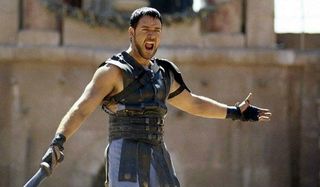
3. Gladiator
It’s easy to forget just how much of an impact Gladiator had on mainstream pop culture back when it was released in 2000. It turned Russell Crowe into the most popular actor in cinema, single-handedly re-invigorated Hollywood’s interest in the historical epic, and despite its gargantuan 2 and a half hour running time, passed by in a hazy breeze of action, incest, and heroism. Maximus instantly became a cinematic icon, The Battle of Germania was labelled as one of the best battle scenes in movie history, but what truly made Gladiator so immense was its intimate look at the intensity of life as a Roman gladiator. Scott perfectly glides his camera through the action sequences and tender moments, never missing a beat and always keeping the audience in the palm of his hand as well as on the edge of their seats.
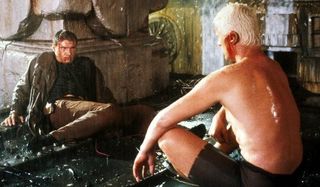
2. Blade Runner
Blade Runner is the type of film that is so magnificent you don’t really realize just how great it is the first time you see it. All you know is that it has taken you to a place, to a feeling, that you didn’t expect to go to. Its dystopian look into the future is haunting, un-climatic yet truly intoxicating. Seeped in noir, Sir Ridley Scott creates a world of darkness, death and constant rain that you are slowly drawn into. Although it was chastised upon it initial release, mainly thanks to poor advertising that insinuated it was an action/adventure, filmmakers soon recognized its importance and its influence on the sci-fi genre was immediate and continues to this day. Patient, bizarre, yet prescient, Blade Runner is almost overbearing at times, but it still resonates and perfectly leaves more questions than answers. It’s sumptuous filmmaking.
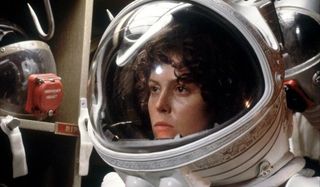
1. Alien
I genuinely don’t think that there is a single thing wrong with Alien.. It literally is filmmaking at its most grandiose, intimate, terrifying and alluring. All of which co-exist at the same time. Scott toys with his audience throughout the films 117 minute running time. The first 45 minutes are slow, but it then breaks into a furor thanks to John Hurt’s iconic death, which proves to be the catalyst for a relentless final hour or so. The enclosed quarters of the Nostromo become more and more suffocating and you feel that the titular alien is closing in on you as each crew-member perishes. It’s unashamedly bleak, ugly and distressing, while also perfectly meshing together elements of the sci-fi, horror and thriller genres to create a unique cinematic cocktail. It’s cinema at its most perfect. It will always be regarded as one of the greatest pieces the medium has ever produced, and will likely remain forever as Sir Ridley Scott’s greatest achievement in filmmaking.
Most Popular







